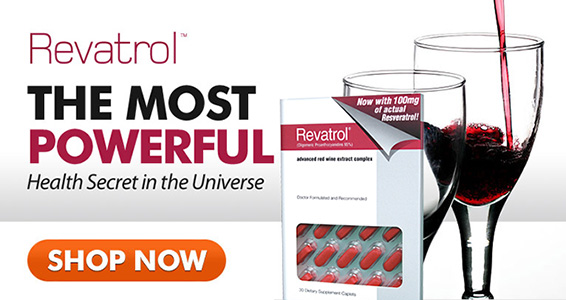[Printable Version of This Page]
Resveratrol + Exercise Renews Youth in Muscles
![[Image 1]](/rhp/images/library/170/muscularmanatbeach.webp)
The usual definition of “sarcopenia” is muscle loss related to aging. That’s grossly misleading because sarcopenia starts when we’re still officially young, sometime in our 30s.
People who do not exercise strenuously lose about 3% to 5% of their muscle mass every decade from age 30 onward. Those who do exercise also lose muscle mass, but somewhat less than that.
Sarcopenia is one of the reasons we tend to gain weight with age. Then, if we do gain a bit of weight, sarcopenia also makes it harder to shed those pounds. Less muscle mass means a lower calorie burn.
For instance, a six-foot male who weighed 180 in his youth (age 30) and was slightly active, could maintain that weight on 2500 calories per day. Now advance him to age 60 and a weight that has crept upward at just 1% a year. Now he weighs 242 pounds. Getting back to his youthful 180-pound weight would require dropping his intake to 2100 calories to lose weight slowly, over 18 months. If he wanted a “fast” loss, he could drop down to 1600 calories and make his goal weight in 8 months. That would more or less take a big plate of spaghetti and meatballs out of the diet.
Most dieters want something faster than that, however. If this man wanted to shed his 62 pounds in 90 days with diet alone, he would need to cut his calories to less than 1,000 per day!
Women usually start at a lower weight, with less muscle mass, which means fewer allowable calories to begin with. Thus the effects of time and slow weight gain accrue even more bitterly. A 5’5” young woman weighing 120 pounds who is slightly active can maintain her weight on 1900 calories. But at age 60, after gaining 1% per year and becoming inactive, this woman would be at 161 pounds. Getting back to her earlier weight without exercise would limit her to only 1,017 calories per day for rapid weight loss or 1,350 to bring it down slowly in just under a year. A “rapid” 2-lb a week loss without adding heavy exercise is out of the question if she wants to maintain her health because the calorie allowance would be too low.
This is why recent research on resveratrol alongside exercise is so encouraging. It can turn back the clock on your muscles. And that could speed up weight loss—just as if you were young again.
In an experiment at the University of West Virginia, researchers divided 12 men and 18 women into groups that undertook exercise alone or exercise combined with 500 mg per day of resveratrol.
The resveratrol did not lower their cardiovascular risk any more than exercise alone did, but it greatly enhanced their physical condition. The group that took resveratrol alongside exercise saw significant increases in their muscle fiber area, a boost in their maximal oxygen consumption, and an improvement in mitochondrial structure and density.
That last item is important for weight loss. The mitochondria in our cells control cell respiration and energy production. So an increase in well-formed mitochondria translates into better energy—a potentially higher metabolism—that essentially pushes the aging clock in the muscle cells backward.
Should you want to try this at home, the team at WVU had the exercise groups do moderate aerobic and resistance training that they felt was consistent with what a person age 65-80 (as their subjects were) could do on their own.


![[Guarantee]](https://scripts.renownhealthproducts.com/rhp/images/money-back-guarantee.webp)
![[Renown Health Products: Proudly Providing Superior Grade Supplements Since 2002]](https://scripts.renownhealthproducts.com/rhp/images/rhpmain/design2/seal-285-240.webp)




